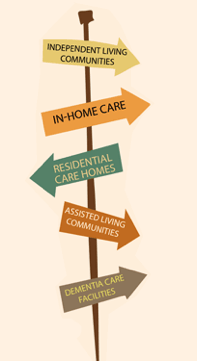Posts Tagged “Retirement Living Northwood”

If you have decided to downsize into a smaller place, you’ve already made the difficult decision to sell your home. The next set of difficult decisions involves what to take with you. In your new home, you won’t have the room for everything you own. Also, you have made the decision to downsize your living…

The idea of aging place is appealing to many seniors. Many want to stay in their home as long as possible. Their home is comfortable and they are happy there. It seems like the easy choice. But in reality, it’s one of life’s most difficult decisions. The options are “age in place” remaining in the…

The reality is, as we move thru the different stages of life our housing needs change. I meet with many retirees who are struggling with coming to terms with making a change. They know it is inevitable, they will have to make a move but is always easier to deal with it when it is…

One of the biggest questions I am asked by seniors is “When should I sell my home?” In reality this is usually two questions rolled into one. First is the question of “what time of year is best to sell” and the second is “based on our situation, when is the time for me /…

Some people will opt to buy a smaller home or condo, some others will decide to rent So the kids have moved out and now you have a lot of extra unused space I your home. You’re paying maintenance, heat, lights and taxes on a home that you may now only be using half to…

Many seniors are not changing their spending habits to match their coming reality At 65, will you still have a mortgage hanging over your head? Are you a Boomer over 50 who will still be making mortgage payment once you reach normal retirement age? If so, you’ll be like 35% of other senior homeowners, according…

